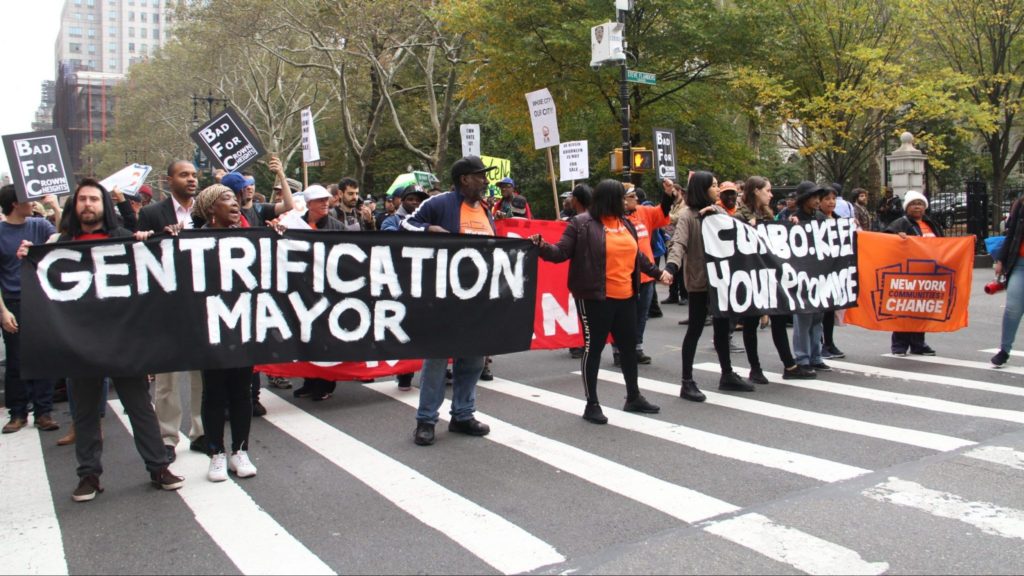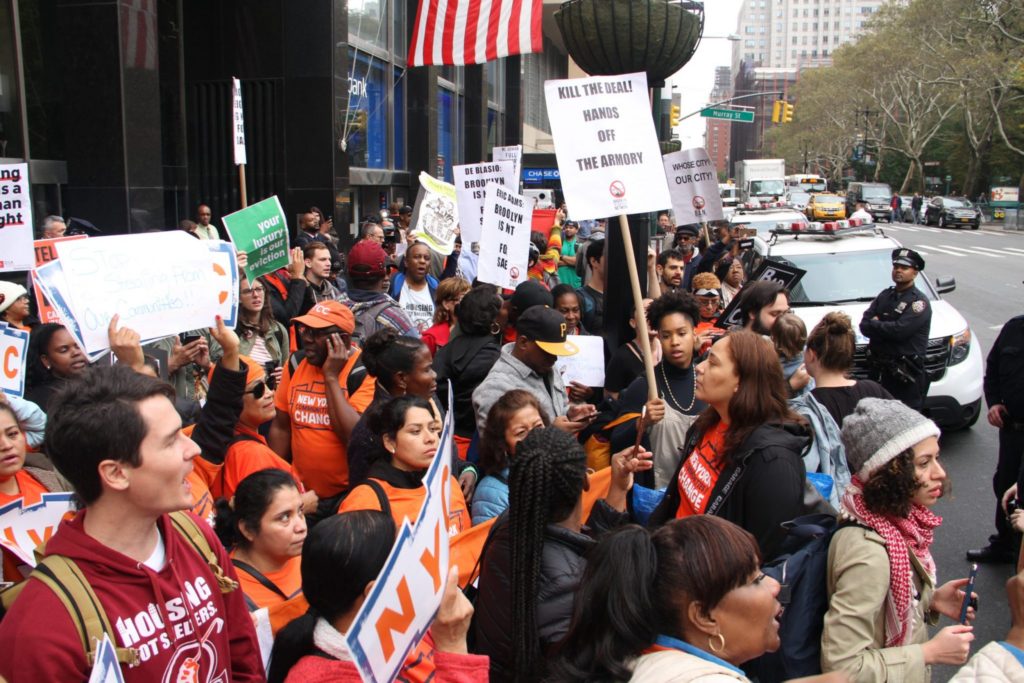
Valentine’s Day fell on a Thursday this year. Although most New Yorkers had plans to celebrate after work, a conference room in Downtown Brooklyn was buzzing with excitement and it was barely two o’clock in the afternoon. A staff member of New York Communities for Change had just interrupted an ordinary meeting to inform everyone that Amazon was pulling out of the deal to bring half of their second headquarters to Long Island City, Queens. The news broke on Twitter, but soon all the major media platforms had confirmed the news. This was an enormous victory for NYCC, one of the grassroots organizations that vehemently opposed the deal. It was also a victory for Jonathan Westin, NYCC’s executive director, who stood among his staff smiling, in disbelief.
He later tweeted:
“Amazon breaks up with New York on Valentine’s Day. Best Valentine’s Day ever.”

Westin has presided over NYCC, a non-governmental organization working on a myriad of issues including housing, labor, criminal justice reform, immigration, and anti-poverty issues, for almost seven years now. However, he’s been there since its conception in 2010. Since then, NYCC has become one of the most influential community-based organizations in New York State.
The issue that initially put Westin and NYCC in the spotlight was their work for the ‘Fight for $15’ campaign that advocated for a $15 minimum wage in 2012. Eventually, NYCC succeeded in securing the $15 minimum wage for all New Yorkers living in the Downstate region by 2021. The initiative has gained national support, but so far has only seen success at the state and local levels.
NYCC’s successful enterprise finds its roots in the similarly modeled Association of Community Organizations for Reform Now, usually referred to as ACORN. Although ACORN had been a renowned community-based organization since the 1970s, after being accused of voter-registration fraud in 2009, it lost considerable amounts of its funding and was forced to file for Chapter 7 liquidation. This effectively shut down the entire operation despite numerous independent investigations that determined there was no real criminal activity committed by any of ACORN’s staff members.
After declaring bankruptcy, ACORN’s New York chapter became NYCC. Westin, who had worked at ACORN ever since graduating from Northwestern University (where he took part in some anti-war organizing opposing the Iraq War) in 2006, was, and still is, deeply passionate about its issues.
“I was sociology major wanting to do more work in either politics or activism,” says Westin. “I met the folks at ACORN when I was in college and started working for them immediately after. This was all during the time of the Obama presidency, in Chicago, and there was a little bit of idealism around community organizing. But it made sense for me.”
It’s not all idealism though. It’s also door-knocking, sit-ins, countless hours on the field, direct action, hard work. In the aftermath of Amazon’s retreat, many have credited passionate local grassroots organizations and coalitions, which certainly includes NYCC, instead of local politicians as the force behind the tech giant’s decision to abandon the deal.
“We started talking to Amazon workers around a year ago,” says Westin. “After the success of ‘Fight for $15’, we felt like we needed to take on big tech companies like Amazon. Our fight wasn’t necessarily about wages, but it was about the prospective massive gentrification of our communities that would drive up the cost of living and treats workers like crap.”
This sentiment is emulated by his coworker Zachary Lerner.
“We did anti-Amazon protests almost weekly,” chuckles Lerner, the Senior Labor Organizing Director at NYCC. “Jonathan, throughout all the years that I’ve known him, has never been afraid to push the limits and make sure that our organization is heavily centered around direct action. I mean come on, we took 150 people and took over the Amazon bookstore on 34th Street on Cyber Monday. I think that definitely contributed to our victory over Amazon.”

The two met right before ‘Occupy Wall Street’ at a march organized by teachers unions and other local activists, protesting against economic inequality. Coincidentally, this was also around the time Westin met his wife, Camille Rivera, now the National Political and Legislative Director at Retail, Wholesale Department Store Union (RWDSU).
Activism seems to be the axis around which Westin has centered a significant part of his professional life. It doesn’t take much to see how deeply he cares about the issues NYCC fights and advocates for. When questioned whether he would ever run for office, the former Northwestern football player, laughs:
“People have told me to run for office at various points of my life, but I don’t think I’ll ever do it,” he says. “ I feel like once you’re in office you lose the ability to push the envelope as far as you can. I think we could do a lot more from the outside.”
Jana Cholakovska

Jana Cholakovska, the managing editor of “In the Zeitgeist” and co-director of the Politics Society editorial is a junior at NYU double majoring in Political Science and Journalism. She comes from the small South-Eastern European country of Macedonia (now officially Republic of North Macedonia but that still sounds a bit weird to her) but hopes to work as an investigative journalist internationally. She spent the last summer working for New York Family Magazine. Outside of the classroom, Jana loves to read fiction, dance, and repetitively listen to music until her roommates are sick of it.



